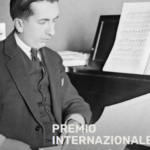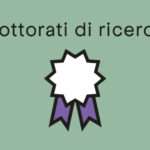07 Gen Narrating Musicology. Reviewing the history/histories of musicology. (International Conference of the Institute of Musicology, University of Bern, 1-4 Ottobre, 2020)
In November 1996, a musicological colloquium was held at University of Bern under the title Musikwissenschaft – eine verspätete Disziplin? (‘Musicology – a Delayed Discipline?’). The discussions and outcomes that took place were then published four years later in an anthology of the same title, edited by Anselm Gerhard. The aim of both the conference and the publication was to focus less on specific key people or institutions, and instead foreground general tendencies within the history of musicology: from its beginning in the late 19th century until the time of publication and with a scope also beyond the German- speaking world. Even if relatively late, this approach proved essential for considering the history of the musicological discipline as an object of study in itself.
More than twenty years later, and in light of the upcoming 100 years’ anniversary of the Institute of Musicology, Bern, which will take place in 2021, we now take the opportunity to once again reflect on these issues:
- What is the current state of the history of musicology as a discipline?
- How has the reflection on musicology changed current research as well as teachingcontents?
- Can musicology still be understood as a “delayed discipline”?Traditionally, musicology has been divided into three strands: historical musicology, systematic musicology and ethnomusicology. Additionally, related subjects – such as music theory and music pedagogy – have had an important impact on current research on the history of the discipline. The result of this, however, is that multiple and at times even isolated histories of musicology have developed. This conference focuses on these various narratives and aims at encouraging an inter- as well as intra-disciplinary dialogue.The Bernese colloquium twenty years ago focused on the field of tension in musicology “between belief in progress and rejection of modernity”. The discrepancy between international orientation and national chauvinist tendencies, which were both present in the 1990s, were also addressed. The present conference asks, however, is this still the case today? It further queries whether the disclosure of the various narratives, as well as the culturally specific contradictions within the various sub-disciplines have changed the self-perception of musicology as a whole. How important are national factors in shaping the principal focus of the discipline’s history nowadays? This conference focuses on the various narratives that have evolved within our field and questions the motivations which have led to these various regional histories. Therefore, the focus shall be extended beyond Western academic perspectives to a more global, and thus multifaceted approach.
Another important aspect of this conference is the question of why we should study the history of our discipline at all.
- What kind of interaction is at play when on the one hand we focus on disciplinary self-reflection and on the other, on our objects of study?
- What are the objects of study of the history of academic disciplines?
- On the topic of musicology’s protagonists: who is responsible for narrating thehistories of musicology?
- Is the historiography of disciplines an area of study where methodological andcontent-related interpretation can be applied?
- How much power do various institutions have in shaping and constructing thenarratives surrounding musicology?
- What roles do these narratives play in shaping the identities of scientists,institutions and various schools of thought?
- How can musicologists deal with the history of musicology in the digital age?The conference aims to provide a platform where discussions can happen across different generations and between the various sub-disciplines of musicology, music theory and music pedagogy.The conference’s core-topics are:
- Reflections on the various histories within musicology (regional, national and international, as well as inter- and intra-disciplinary practice)
- The interaction between musicology’s self-reflexion and our objects of study (protagonists, methods, institutions, the digital age)We invite you to send your proposals (max. 300 words) for one of the following categories:
- Individual papers (20 minutes plus 10 minutes of discussion)
- Panels (3 related papers of 1.5 hours in total)
- Poster presentations
- Roundtables (4 shorter presentations of 15 minutes each plus a chaired discussion; 2 hours in total)
- Presentation of films, audio or other mediaPlease submit your abstracts to narratingmusicology@musik.unibe.ch by the 1st of February 2020. Proposals will be evaluated anonymously and should therefore not contain the names of the authors. Successful applicants will be notified by the end of March 2020.Further information:
www.narratingmusicology.home.blog









